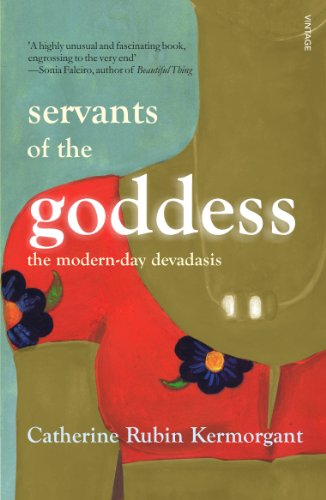Aparna Sundaresan reviews ‘Servants of the Goddess’, a poignant book on the modern-day slavery of women in south India
For a country that is seemingly squeamish about sex and is actively repressive of female sexuality, it sure has a planet-sized foot in its mouth. On the one hand, women in India are driven out of bars because pubs are ‘against the Indian culture’, rapes are justified because ‘the girl was with a guy late at night and so was asking for it’, and books on Hinduism, like Wendy Doniger’s, are banned because it insinuates a ‘sleazy’ link between religion and sex. On the other hand, devadasis still exist, and what’s worse, are expected to exist.
Devadasis, in the modern sense, are no different from prostitutes. They exist to provide pleasure to the men who can afford them. At one time in history, when temples and priests held sway over kings, a devadasi was a young woman who was dedicated to the temple to perform its services. The devadasi performed rituals and was considered holy even by upper caste people. Such was her status that crops would not be planted until she visited the fields. The devadasi was an entertainer for the god who resided in the temple, singing and dancing for the deity and the temple visitors. The very same devadasi was also the provider of sexual services.
We wonder today why this dichotomy exists where women on one hand are deified but on the other are objectified. The answer probably lies in the devadasi system.
Catherine Rubin Kermogrant’s book, Servants of the Goddess: The Modern-Day Devadasis, is a window into an atrocious practice still prevalent in parts of India, specifically south India. Kermogrant profiles the lives of five women dedicated to the cause of Yellamma, the goddess of the devadasis, in Kalyana village, Karnataka. The women in the village have tragic stories to tell, but they all begin at the same place: they were sold into the cult because their families were too poor to afford to keep them. Girls as young as nine are pledged to the goddess, because, as Kermogrant puts it, “deflowering a devadasi was a matter of great prestige,” and still is. Some fall prey to the flesh trade and are sent to Mumbai and Goa to work as full-time prostitutes.
The historic devadasi is no more. Today’s devadasis are mere prostitutes. The head devadasi still retains some of the spiritual mysticism of the past; she leads the Yellamma worship in temples and initiates young girls into the fold. For the rest, their life is about ‘doing dhanda’ – “sex work”.
Kermogrant’s book is not a work of fiction, but reads like one. It has a plot, dramatis personae of characters, conflicts and even a proper ending. This is a book for fiction and non-fiction readers alike, and Kermogrant’s lucid style keeps you glued to the pages, even if the subject matter is grim.
Reading tip: Visit http://www.servantsofthegoddess.com/ while reading. The website has images of the women profiled in the book.
Publisher: Vintage Books (Random House)
Price: Rs 399
Page extent: 396

































